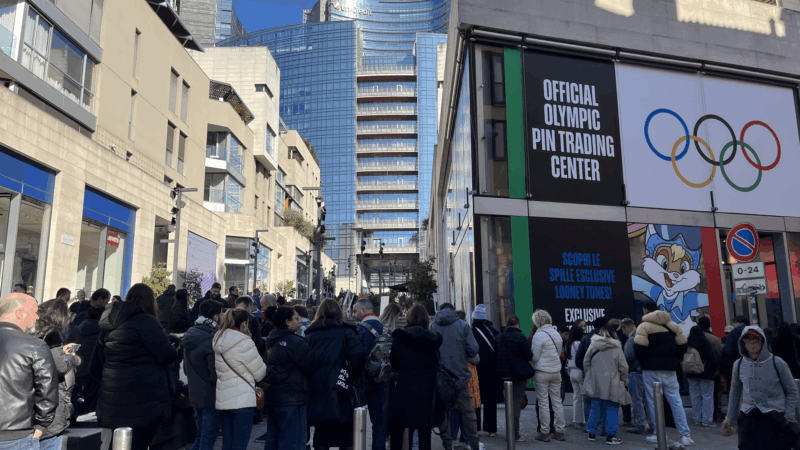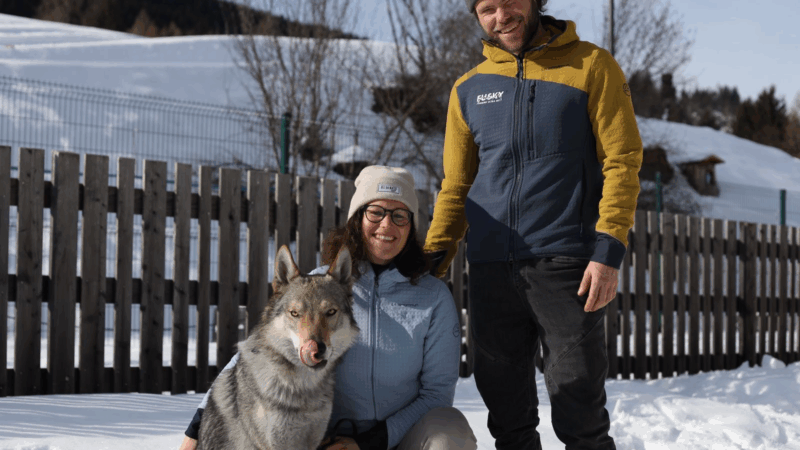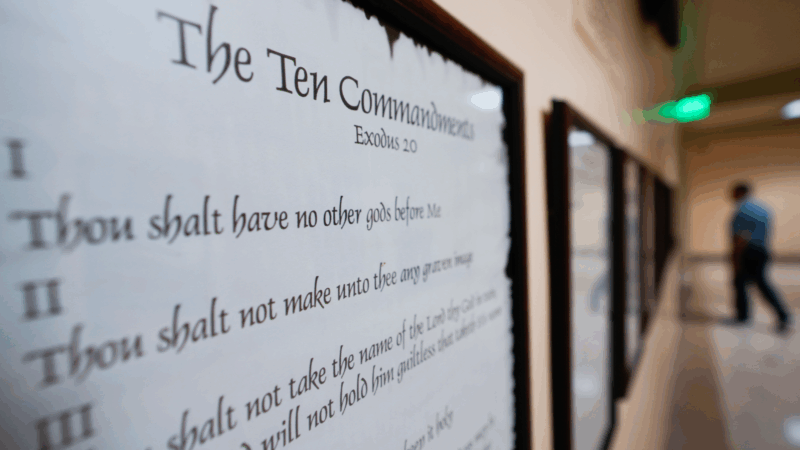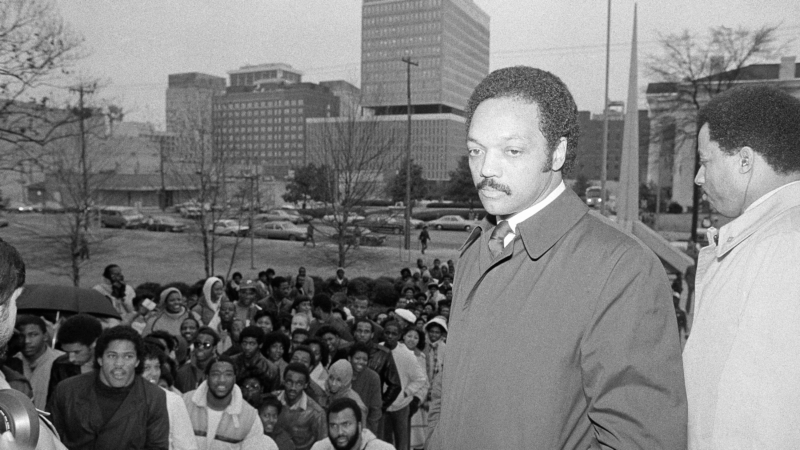Lectures Behind Bars
Few people normally go to Donaldson Correctional Facility, a state prison in far western Jefferson County. But twice a month UAB faculty travel to this maximum security prison to lecture to inmates. It’s been happening for almost three decades.
Inside a large cinderblock hall, 36 men sit in quiet rows as UAB English Professor Nicole Lariscy begins this session of the Donaldson Prison lecture series.
“What I was hoping to try tonight is just do some stories with you,” Lariscy tells the class. “Are you willing to try that?”
All the men are in white uniforms stamped with Alabama Department of Corrections. Some have pens in their front pockets and thin notebooks on their laps.
Lariscy prompts a discussion with the question, “What’s the difference between not true and made up?”
An inmate in the front row answers that sometimes things that are made up have certain elements of truth in them.
It could almost be a college class, except three guards walk a quiet line around the inmates. And the classroom’s doors stay locked.
Ronald McKeithen has been in prison for 31 years and is serving life without parole for various robbery charges. When McKeithen first came to prison, he hadn’t even finished high school. Now he attends every lecture he can.
“I just like learning new things,” McKeithen said. “It makes me feel alive, like I am not dying in here.”
The reason McKeithen’s able to take in these lectures is because of an unfortunate turn of events 27 year ago.
Ada Long was the dean of the UAB Honors College at the time. She heard about a smart student who had been accepted into the Honors College. But the summer before, he had also been charged with murder. Instead of enrolling as a freshman, he went to Donaldson to begin a life sentence.
In response, Long started a lecture series, where UAB faculty and staff teach classes on whatever they want — for instance, Milton’s Paradise Lost, exploring caves or HIV and sexual health. The lectures aren’t for credit, but only inmates with good behavior are allowed to attend.
“We don’t want to lock them up and have them forget how to behave and how to function as a person,” explains Cheryl Price, the warden of Donaldson. Price is responsible for Donaldson’s 1,600 inmates, and she says the lectures remind inmates what life is like outside, both the privileges and what will be expected of them. That’s important, because 97 percent of inmates in the U.S. prisons are eventually released.
“It gives [the inmates] some dignity,” Price said. “Education is the one thing that you can’t lose, no one can take from you.”
Libba Vaughn, who runs the program now, says UAB faculty constantly send her emails about how much they enjoyed the experience and how the lecture series reminded them of why they love teaching.
“Because they are speaking about what they are passionate about to a group of people who are, for the most part, very curious and willing to be there and listen and learn,” says Vaughn. “And that doesn’t always happen in the regular classroom.”
Back in the prison classroom, UAB Professor Nicole Lariscy prompts the students to reflect on their own lives.
“Tell me a story,” Lariscy says, “that shows me what motivates you to get out of bed in the morning.”
Slowly, men start raising their hands. One man describes his mother’s leaky roof and how he wants to get home to fix it.
Ronald McKeithen, the man serving a life sentence, tells a story about when he transferred to Donaldson. He was lying in the prison infirmary and saw a dead body being wheeled out on a stretcher. All he could see of the man was a toe tag identifying the body.
“And I am thinking, ‘I don’t want to be like that.’ You don’t know who he is or what he has done,” said McKeithen. “So it motivates me to get up in the mornings…just don’t be a number. Any opportunity I get to learn something new, a class come up, I want to take it. I don’t want to be just a number that you barely even notice.”
The lecture ends, but not in the way college classes normally do. The men applaud loudly and thank Lariscy.
Then they slowly file back to their cells. Lariscy says she’ll be back.
Trump to raise global tariffs to 15%
President Trump previously said he would implement 10% global tariffs after the U.S. Supreme Court struck down his tariff policies.
Pin trading has taken over the Olympics. Here’s what it’s like in Milan
Pin trading has become a hallmark of the Olympics in recent decades — and not just for athletes. An official trading center in Milan was a hotspot for longtime collectors and curious newcomers alike.
US military airlifts small reactor as Trump pushes to quickly deploy nuclear power
The Pentagon and the Energy Department have airlifted a small nuclear reactor from California to Utah, demonstrating what they say is potential for the U.S. to quickly deploy nuclear power for military and civilian use.
How Nazgul the wolfdog made his run for Winter Olympic glory in Italy
Nazgul isn't talking, but his owners come clean about how he got loose, got famous, and how they feel now
Court clears way for Louisiana law requiring Ten Commandments in classrooms to take effect
The 5th U.S. Circuit Court of Appeals has cleared the way for a Louisiana law requiring displays of the Ten Commandments in public classrooms to take effect.
Opinion: The enduring dignity of Jesse Jackson
Rev. Jesse Jackson died this week at age 84. NPR's Scott Simon remembers covering Jackson's 1984 presidential campaign in Mississippi.






